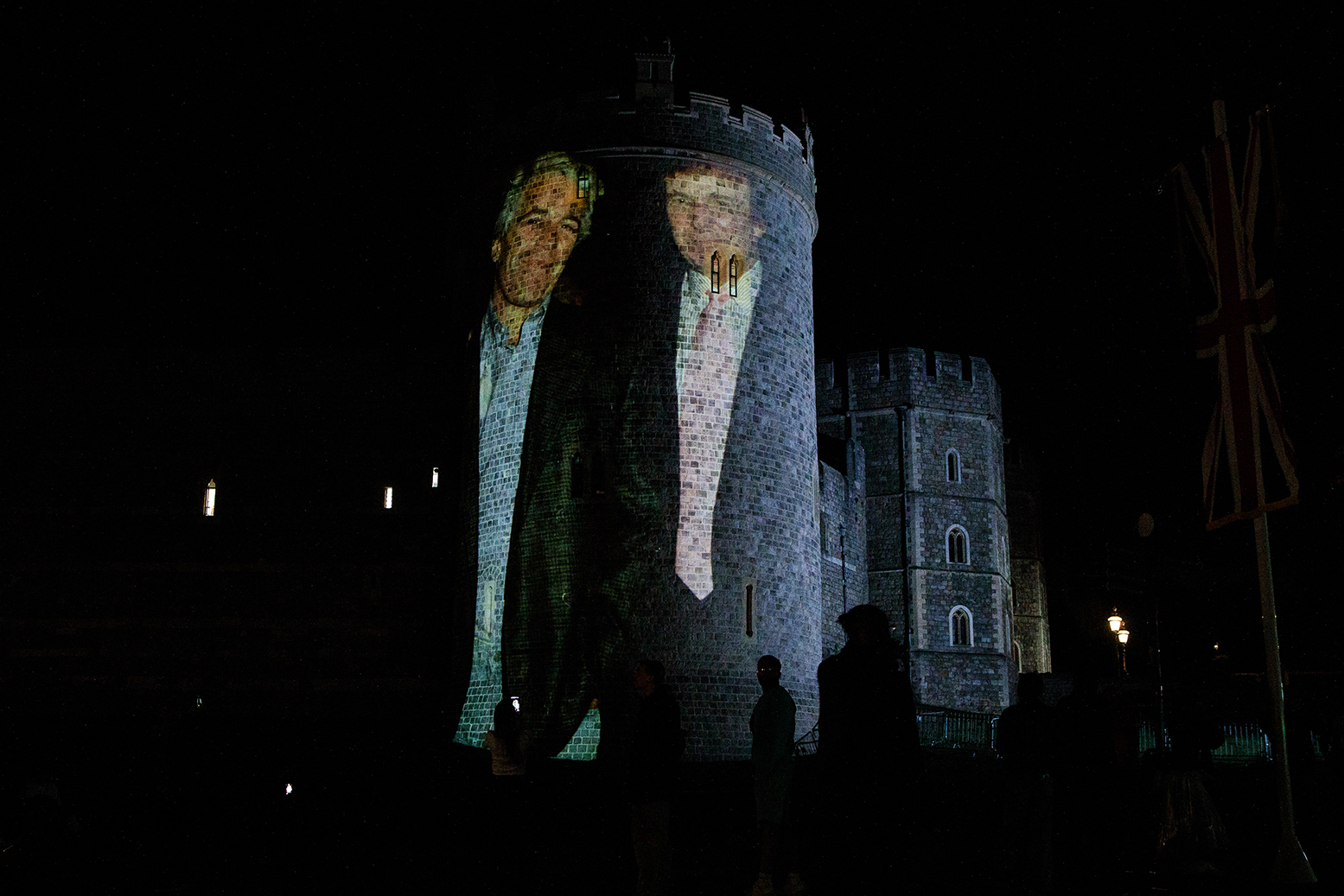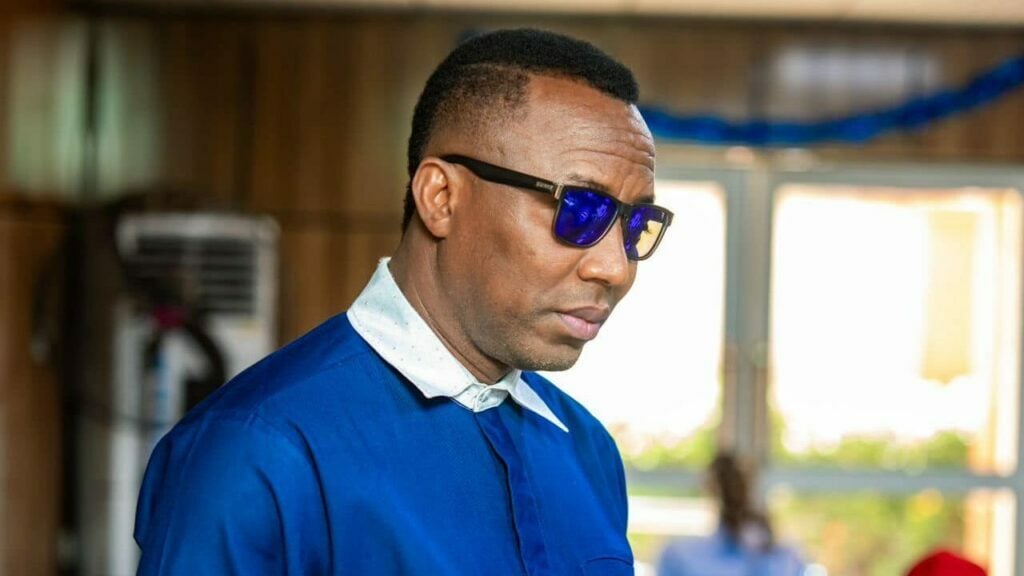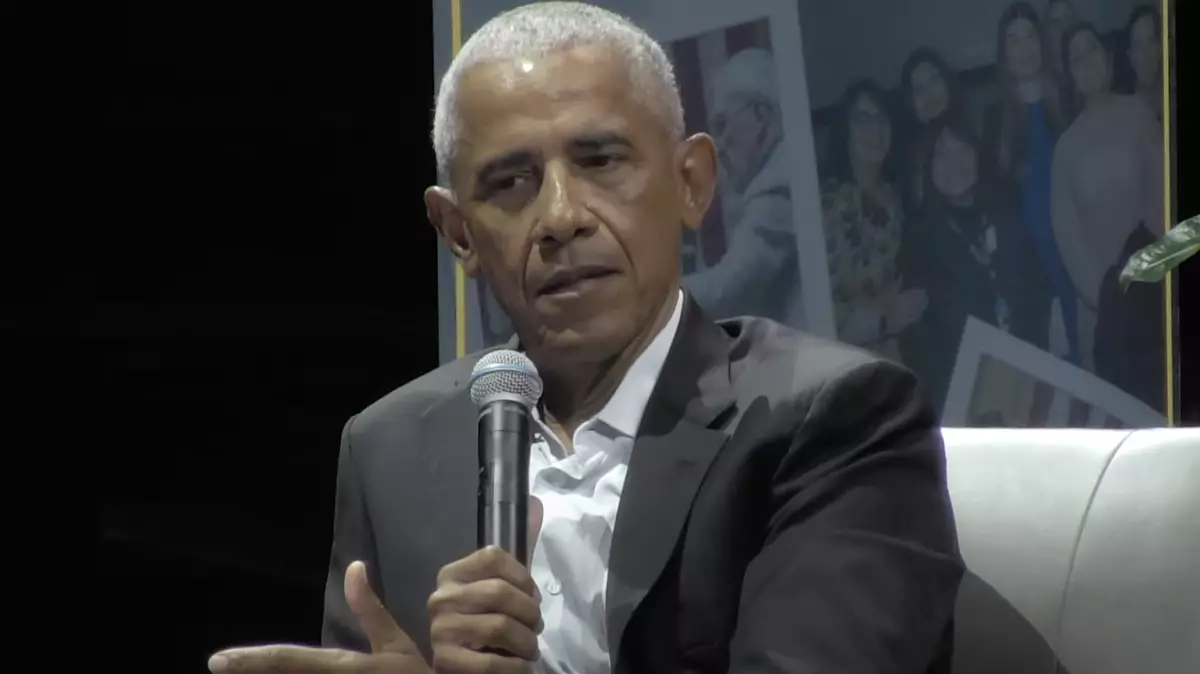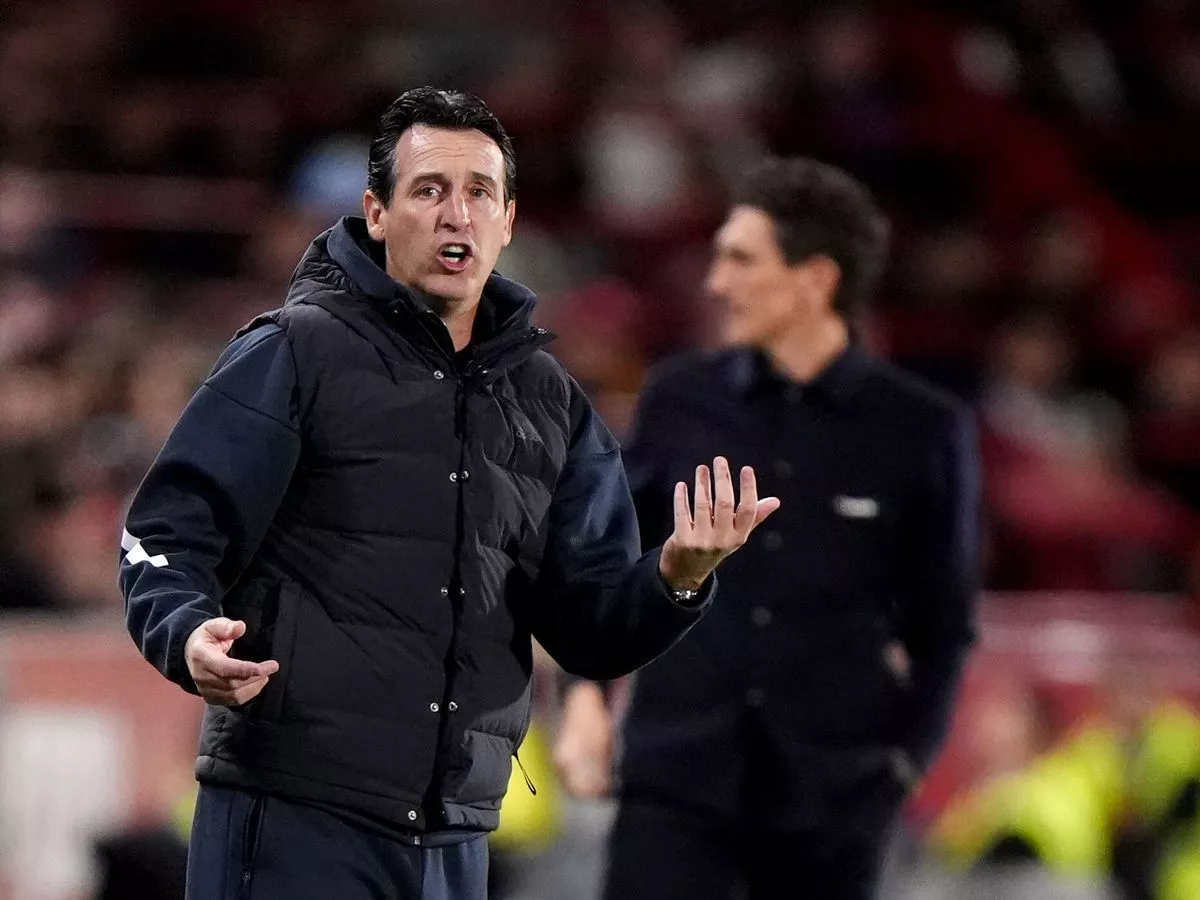By Katie Stallard
Copyright newstatesman

Before Donald Trump had even mounted his golden carriage to begin his ceremonial journey to Windsor Castle on Wednesday, there he was, projected on the ramparts alongside his old acquaintance Jeffrey Epstein in a series of photos and video clips. Four men were arrested, and the projection was “swiftly” shut down, police said. But the incident, which took place as Trump arrived at Stansted on Tuesday, turned out to be a fitting visual metaphor for how the lingering spectre of the late sex offender would haunt the US President’s latest state visit to the UK.
It had all started so well. Keir Starmer presented Trump with a personal letter from King Charles during a televised meeting in the Oval Office back in February, stressing the “unprecedented” nature of the invitation for a second state visit to his US counterpart’s evident delight. In fact, as Emily Channon detailed in the NS yesterday, the letter was merely intended as a proposal to discuss a visit, which was meant to be conditional on Trump dropping his threats to make Canada the “51st state” and cutting the UK a reasonable deal on trade. But Trump missed all that, declaring himself honoured to accept the invitation from the king – “a beautiful man, a wonderful man” – and the British conditions were quietly dropped.
Trump’s long-held admiration for the British royal family is one of the most powerful tools in the UK’s current diplomatic arsenal. He has recalled how his mother, who grew up on the Isle of Lewis in the Outer Hebrides, watched Queen Elizabeth II’s coronation on the black and white television in their New York apartment in 1953, when he was six, and how much she admired “the whole idea of royalty and glamour.” As Starmer’s government sought to navigate Trump’s return to power in January – specifically how to negotiate the dual imperatives of avoiding the worst of his tariff blitzkrieg and retaining US support for European security and the defence of Ukraine – it was only logical to try to charm the volatile president with a state visit steeped in pomp and pageantry.
Alas for Starmer and his flailing government, the timing could not have been worse.
Trump has been besieged at home for months by questions over his personal relationship with Epstein, and demands from both Republicans and Democrats to release the so-called “Epstein files”. Trump had a decades-long relationship with Epstein, who he knew from the Manhattan social scene, and praised him as a “terrific guy” in a 2002 interview. “It is even said that he likes beautiful women as much as I do, and many of them are on the younger side.” But Trump claims to have fallen out with the disgraced financier years before he was convicted of his first sex offences in 2008. Just as the Epstein scandal appeared to be fading, at least temporarily, from the headlines in the US – which were consumed by the assassination of right-wing activist and close Trump ally Charlie Kirk on 10 September – the saga was reignited by revelations of Epstein’s links to Peter Mandelson, the UK’s ambassador to Washington.
Starmer sacked Mandelson on 11 September after Bloomberg uncovered a series of supportive messages he had sent to Epstein in 2008, after the latter had been convicted of soliciting sex from a teenage girl. The emails revealed Mandelson telling Epstein, “I think the world of you” and urging him to “fight for early release” shortly before he began his 18-month prison sentence. As Trump flew to the UK on Air Force One on 16 September, the British parliament was consumed by questions as to how much Starmer – and his key aides – knew about Mandelson’s relationship with Epstein before he was appointed to such an important ambassadorial role.
It was inevitable that the US President’s visit would be greeted with some degree of protests in the UK, where he remains extremely unpopular – the inflatable caricatures of a nappy-wearing Trump in London were always a given – but the Mandelson debacle, and the worsening political crisis it has unleashed for Starmer, have plunged Trump right back into the heart of a scandal that refuses to go away. When Starmer and Trump appear together for their joint press conference later today, they can both expect to be questioned, repeatedly, about Epstein. So much for the plan to woo Trump with a few days of monarchy and marching bands.
Then, of course, there is the festering question of the monarchy’s own links to Epstein through the disgraced personage of Prince Andrew, who was reportedly not invited to his brother’s state dinner for Trump, but whose ghost nevertheless lingers above the banquet. Before Trump departed for the UK, Republican congresswoman Nancy Mace was already calling for the arrest of Prince Andrew “for any and all potential crimes on US soil, writing on social media: “A cold dark cell. Prince Andrew in handcuffs. Sends the right message.” (Prince Andrew was stripped of his royal and military titles in 2022 when he paid an undisclosed sum to settle a civil lawsuit brought by Virginia Giuffre, who accused him of sexually abusing her when she was a minor. He has consistently denied all allegations of wrongdoing.)
Trump is a vindictive man, who campaigned to return to the presidency on a vow to enact retribution against his enemies. He is known to hold long-running grudges and has form for imposing tariffs on entire countries because he dislikes their political leadership. Having already feted his trade deal with the UK – and with few other major trade agreements to celebrate – Trump is unlikely to tear it up, but he will not thank Starmer for dragging him into what he will surely regard as the Labour Party’s domestic political mess.
For Starmer, the only consolation is that Trump is currently preoccupied by the fallout from the murder of Charlie Kirk, whose funeral he will attend on his return from the UK. The Trump administration is reportedly preparing a large-scale crackdown against organisations they claim are linked to “radical left political violence,” despite no evidence the alleged gunman was affiliated with any particular group. With feverish talk of “civil war” fuelled by prominent Maga influencers, and promises to avenge Kirk as a martyr on the right, US-UK relations are not near the top of Trump’s list of priorities, and grievances, for now. But Trump’s allies, including his vice president, are already courting hard-right reactionaries in the UK and imagining a nationalist, populist revolution in their own image. The pathologies now convulsing US politics will not be contained to these shores. Perhaps that is not much consolation after all.
[See also: The Maga crackdown on free speech]



